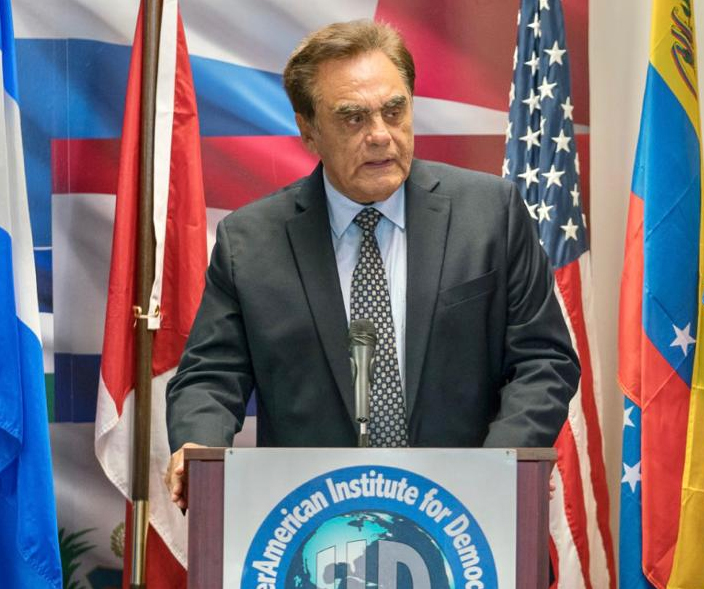Will Trump recognize Maduro as President of Venezuela?

By: Luis Gonzales Posada - 31/01/2025
Share:
It is the sovereign right of the U.S. government, and of any government in the world, to set its immigration policy; that is, to determine who can enter its territory and under what conditions; this power extends to expelling illegal immigrants and those who commit criminal acts.
Trump has decided to exercise this power to the fullest, initiating the repatriation of 11 million undocumented immigrants, of which 300,000 are Peruvian. He has even announced that he will open 30,000 cells at the naval base in Guantanamo Bay, Cuba, to transfer the most dangerous or those with criminal records; a controversial measure, but legitimate, as long as the human rights of the detainees are not violated.
In this context, an embarrassing diplomatic incident occurred, irresponsibly provoked by the drunken Colombian president, Gustavo Petro, who after authorizing the landing of two American planes carrying deportees from his country, suspended the permission when the aircraft were in flight.
Washington's response was to announce the imposition of 25% tariffs on Colombian products and 50% the following week; to suspend the activities of the visa office in Bogotá and to warn that it would apply the IEEPA (The International Emergency Economic Powers Act), which contemplates freezing the assets of companies, individuals and government entities, blocking loans from the World Bank and the IMF, as well as bilateral banking transactions.
In these circumstances, the press recalled that in 2024, during Joe Biden's presidency, 14,000 deportees arrived on 124 flights, without Petro saying a word of disagreement, as he does now.
Faced with threats, Petro backed down due to the catastrophic economic consequences that such retaliation would bring, which could even affect the course of the Free Trade Agreement (FTA) with North America, the destination of 29% of its exports to the world.
Thus, from being a bully, the leader of the movement called the Historic Pact became a submissive politician, burying the patriotic and anti-imperialist discourse, loaded with references to the Liberator; and, contrite, he opened the airspace to receive hundreds of his compatriots; but, at the same time, he launched a demagogic blow against Washington by comparing the raids they carry out with the operations of Nazi Germany.
In this context, the Republican has also signed an executive order suspending for 90 days the delivery of funds from the United States Agency for International Development (USAID), which commits 650 million dollars to Peru in the next five years, a measure that is equally unobjectionable because a donor has the right to supervise the use of the money it provides, most of which is intended to reduce the illegal cultivation of coca leaves.
For Trump, however, the real test of authority will be to push for the downfall of Nicolás Maduro, head of a narco-dictatorship that has turned Venezuela into an open-air prison, exporting ferocious gangs of murderers like the Tren de Aragua and causing the exile of 8 million human beings.
The US president knows well that Chavismo survives thanks to Chevron, Texaco, Mobil and Exxon exploiting the fields of the Orinoco Belt, transporting light crude to the refineries of Illinois, Texas and Louisiana, which in the period 2022-2023 reported purchases equivalent to 17.65 billion dollars, an amount that supports 58% of the regime's income.
Final question: If Washington has recognized the victory of the opposition candidate González Urrutia, who obtained 67% of the votes, will it maintain or suspend diplomatic relations with a spurious ruler? The answer to this question will define the geopolitics of the region and will test the leadership of the head of the White House. Democrats in the hemisphere expect firmness and consistency from Trump, not vacillations, because, if he does, he would be legitimizing an infamous satrapy.
«The opinions published herein are the sole responsibility of its author».